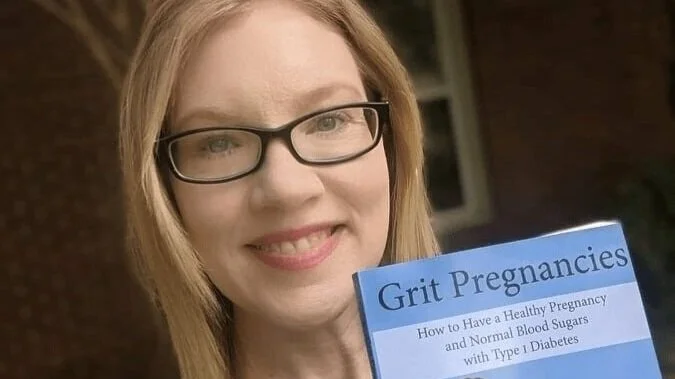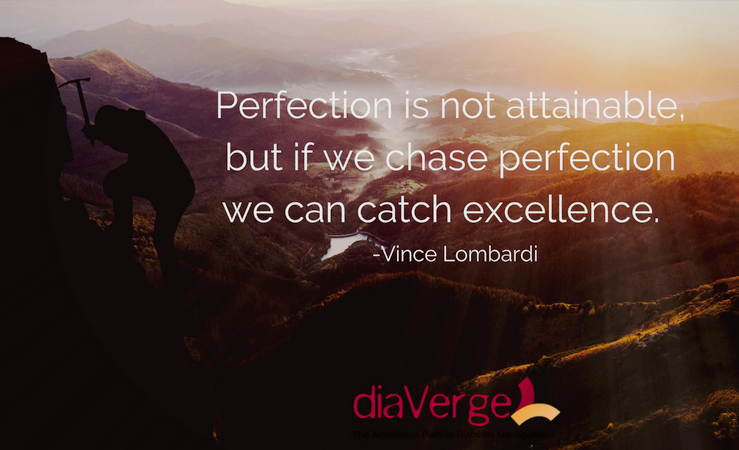Featured Posts:
Scroll down for all diaVerge.com posts
What are the two key elements of optimal diabetes management, and how can we ensure 'luck' is on our side? The answer is simple, but not easy.
When people start optimizing blood sugar levels, many erroneously believe that lower numbers are always better.
Learn about hypoglycemia, where to set your alarms, how to find your hypoglycemia percentage, and why lower blood sugar is NOT better.
Search all diaVerge Content:
All diaVerge Posts:
Observations of a decade of low carb for T1D management. Has it been worth it? What are the regrets? And what has changed in that time.
What are the two key elements of optimal diabetes management, and how can we ensure 'luck' is on our side? The answer is simple, but not easy.
When people start optimizing blood sugar levels, many erroneously believe that lower numbers are always better.
Learn about hypoglycemia, where to set your alarms, how to find your hypoglycemia percentage, and why lower blood sugar is NOT better.
Processed food addiction is common, and can be a barrier for those with diabetes who want to gain control of blood sugar levels and weight. Lucy of diaVerge Diabetes interviews Dr. Joan Ifland, expert in processed food addiction here.
Are you a person who knows what you should do and does it? Or are you a person who gets lost in the details or procrastination, and never takes the steps to do what you want to do?
Welcome to our newest diabetes educator, Lucia Feito Allonca! Lucy is a lawyer in Health Law, Bioethics & Patient Rights, and is holds a Diabetes Educator Certificate through IDF. She’s also lived with type 1 diabetes for more than 30 years. Lucy is providing type 1 diabetes education for optimal blood sugar management in Spanish.
Do you know how to keep yourself - and your insulin - safe in extreme hot temperatures? Click here to read all about what you can do as a person with diabetes to have a fun, active summer AND stay safe.
FREE DOWNLOAD: Problem-solving guide to bolus/mealtime insulin. Figure out what's happening and how to solve it with this handy downloadable guide to blood sugar levels and glucose corrections.
How planning and gratitude will help you to be more successful both now and in the future.
diaVerge is disrupting the mediocre standards of diabetes education and helping people with type 1 diabetes achieve huge improvements in blood sugar, weight, blood pressure, and other health markers.
diaVerge Diabetes announces Patrick Rowe Ph.D, MPH as the newest member of the Coach Educator team!
If you’re new to diabetes, or want to improve your diabetes management using a low carb approach, these are the top 10 steps you should take to get started.
It’s frustrating when your doctors don’t support your goals with diabetes. Here are several lists of low carb medical professionals around the world, and these lists are growing all the time. Check back frequently to see who has been added near your location.
Time in Range, when used alone, doesn’t matter. Find out what you need when considering blood sugar/diabetes ‘success’ based on your CGM or meter data.
Low carb holidays (with steady blood sugar levels throughout) are possible - but it requires a plan for success. Check out these ideas and recipes from Ashley Harris of diaVerge.com for a happy, diabetes-friendly low carb Thanksgiving.
It’s not just about carbs for diabetes management, but how we can control our blood sugar levels and create the best environment for optimal bodily performance. No matter what your goals or health condition, the team at Optimising Nutrition has a recipe guidebook for you.
How to use the untethered insulin pump approach for diabetes management. Ashley Harris describes her experience with her daughter with type 1 diabetes and how this approach creates more freedom for both parent and child.
How much protein do you need for low carb diabetes management? What types of protein are best? What if you’re still hungry after a meal? What about protein for kids and athletes? Check out this video post as we cover all the basics of protein consumption for optimal blood sugar levels - and include both metric and imperial measurements.
These people are dedicated to spreading knowledge about low carb for diabetes management. They work tirelessly as doctors, nurses, professors, researchers and community-builders. Thank you to each of these people, and the many more who are not listed here, for your work as a "Low Carb Diabetes Influencer."
We've been told by advertisers that we're too busy to cook fresh meals. We've believed that convenience foods are in our best interest. We've been tricked. Large food corporations are funding our medical organizations with sponsorships. What happens if we DON't buy into that? What can we do instead?
In the third and final part of of our interview with Dr. Richard K. Bernstein, we discuss the autoimmune issues that he and his family experience, his view of the "low carb battle" we are waging and the interview wraps up with his favorite and most dramatic subject.
Part two of our interview with Dr. Richard K. Bernstein. We discuss stress, exercise, overeating, the role of amylin, and more. Find out what Dr. B enjoys for stress relief.
Lisa of diaVerge.com conducted an hour long in-person interview with Dr. Richard K. Bernstein. Read about her experience and an interview excerpt on how we can help Dr. B continue his practice and spread his knowledge and research. Full interview to be posted later this week.
There are many factors that influence blood glucose spikes. Here we look at a few of those factors and how they can often work together to create unexpectedly hight blood glucose levels.
How does fruit affect your blood glucose control? Should you be eating it? What about the nutrients in fruit? The guide to Dr. Bernstein's recommendations regarding fruit.
I stopped at Whole Foods Market for the first time in years. What I found was overwhelming, beautiful, and expensive... but I did also find a few items I've been wanting to try. Here is my review of Lily's Chocolate, Epic Meat Bars and GimMe Seaweed Snacks.
The morning of January 15th was unlike any other in my life. Convulsions and a BG of 19 mg/dL, which led to a pinched nerve in my neck and continuing symptoms. This severe hypoglycemia was not a result of low carb, as some would like to blame, but of exhaustion and making one bad decision.
Although protein isn't the main focus of LCHF, it's the most expensive. Here are a few ways that you can help to stretch your low carb grocery budget, while including the necessary protein. Do you practice all of these tips? What works best for you and your family?
There are many recommendations for the management of diabetes but low carb eating, along with modern medicine, is the best treatment to avoid long term diabetic complications. Listed here are at-a glance tips from Dr. Bernstein's Diabetes Solution, to help maintain your best possible health with Type 1 and Type 2 diabetes.
What's the difference between discipline and commitment? Which should you focus on and why? We discuss it all here - and where you should focus for success in eating low carb.
There's been more overt nastiness within the diabetes community. Let's agree to disagree. Let's focus on US and what our needs, motivations and goals are today. Let's realize that everyone is on this diabetes journey together. Let's be kind.
This is not just about low carb eating. Diabetes management includes insulin dosage and timing, along with a whole group of other factors. Here we discuss a few of Dr. Bernstein's recommendations for insulin therapy, and how these can be translated to use with rapid-acting insulin.
For weeks, I suffered from varying degrees of dizziness, body weakness, headache and confusion. I had trouble finding the right words and concentrating on my writing. I felt absolutely helpless.
Of course I was thinking my problems were really serious. I was convinced I had a brain tumor or degenerative neurological issue. SOMETHING had to explain the symptoms I'd been experiencing.
What I eat on a daily basis has been documented both the diaVerge Facebook page, here in the food gallery, and within the post What I Eat- A Typical Day. Until now though, I've never published the exact metrics of my daily food consumption, or a week's average.
For the past 7 days, I weighed and tracked everything I ate.
diaVerge has been featured in Diabetes Daily! First with my story and again yesterday with an article I wrote specifically for the Diabetes Daily audience. You will see us writing for other resources in the future, all in an effort to spread the word about the practical, every day implementation of the low carb way of eating for diabetes management, Click here to see links to the articles and let us know your experiences with low carb
We all encounter times when we have no low-carb support: your workplace, a relative's house, a restaurant.... even in your own home. Everywhere we go, we're faced with other people's eating habits. This time of year is particularly bad. Between Halloween and New Year, it's a constant barrage of high-carb foods and the common practice of Celebration = Treats.
The Whole30 re-set program, based on Paleo principles, helped me tremendously in understanding that grains have a negative affect on my body. While I didn't achieve the blood glucose stability following the Whole30 as I do with Dr. Bernstein's low-carb program, reading the book It Starts With Food, and following two months of Whole30 protocol before starting low-carb were invaluable experience for me.
Why should I focus my energy on the negatives of this world when there are so many INCREDIBLE things? Why do I want such a heavy, negative thoughts to drag me down?
The whole spirit behind this site is to maintain a positive voice, and focus what we can do to help ourselves.
The song "Verge" by singer/songwriter Owl City is a perfect example illustrating how I feel making the decision to eat low carb. This is not some small choice. This is a commitment to take control of your life back from Diabetes. "We're on the verge of the rest of our lives tonight." Watch the video, read the lyrics here and let me know what you think. Do you agree?
Eating a low carbohydrate diet can get expensive. Here are 15 tips to help you make the most of your food budget every month. Some of the tips are common sense, while others are based on traditional food prep and storage techniques that our grandparents may have used.
For several years (during both of my pregnancies and the time in between) I maintained A1c levels of 5.8% to 6.3% (this falls within the ADA's recommendations of "Tight Control") and my doctors were thrilled. BUT these levels were due to dramatic daily highs and lows, which lead to a lot of danger, uncertainty and stress. I often had no idea what was causing high blood glucose levels and would blame my pump, or my calculations, or myself.
I ask my girls to use their words frequently. They might be having trouble expressing their emotions, or telling a story, or trying to figure out what to say to friends in certain situations. Together, we talk about how to talk about things.
Then about a week ago, I read this beautiful post from Momastery.com about how to help your kids choose the right words to avoid peer pressure. Because, as she writes, when we're put on the spot, we panic.
This applies to our low-carb lifestyle, too. As people who eat very differently from the general population, we face pressure every day and need to have responses ready those times we feel pressure.
Eating nuts can be a challenge for many people because it's so easy to overeat. I struggle with this on a regular basis, as written in the previous post, Perfection is A Myth.
We justify it by saying, "I'm just going to grab a handful," but then we don't stop at just one. Well, what actually is a handful of nuts? How much does it weigh? How many carbs and how should we better control this seemingly uncontrollable habit?
If your single goal is perfection, you're going to stumble, not live up to your own expectations and/or drive yourself crazy trying. This is nowhere more apparent than with Type 1 Diabetes.
I do my best every day, I read as much as possible, I write, I post. Diabetes is on my mind 24/7 but I'm not perfect.
Lows are to be respected, not feared.
A great benefit of low-carb eating is that a diabetic will no longer experience crashing lows like they did when they were eating large amounts of carbohydrates and using large amounts of insulin. When eating low-carb, lows tend to be very gradual, and since you are following the Law of Small Numbers, your body only requires a very small correction to get to the ideal blood glucose level of 83 mg/dL.
The primary Diabetes management concept Dr. Bernstein recommends to achieve normal blood glucose numbers is "The Law of Small Numbers." Dr. B explains it like this:
"Big inputs make big mistakes; small inputs make small mistakes.” Dr. Bernstein's Diabetes Solution (p. 108)
So, what does this mean for your everyday eating plan and blood glucose control? What should you do?
Before the introduction of food science/food technology, before the development of 90% of the grocery items we have available today, we had food. Real food. There were whole foods that you had to prepare and cook at home.
There were few restaurants and fewer packaged goods, so everyone cooked: with meat, butter, lard, full-fat cream, and a ton of fresh vegetables, many grown at home.
With consistent commitment to better health, you WILL see results. The very first day eating low-carb, your insulin needs will decrease. As you refine your insulin needs (for a Type 1 Diabetic requiring insulin) and your food, you will see improved blood glucose numbers. You will no longer have to fear surprise high or low blood glucose levels.
Here are 10 tips that will help you achieve long-term success with the low-carb way of eating:
The path to self discovery and self improvement is often difficult and paved with boulders. We must persevere. We must keep going. There is help along the way, so don't give up. Your struggles are not unique. Help is nearby and is on the same path. They will catch you when you stumble and buoy you up when you need. They are your tribe....
PEOPLE OFTEN HAVE MISCONCEPTIONS ABOUT WHAT TYPES OF FOODS THOSE OF US ON LOW-CARB DIETS CAN EAT. I want to share what I eat in a typical day and my insulin requirements. This will not be the same for everyone, but can serve as a guide if you are considering a low-carb diet for diabetes management.






























































Observations of a decade of low carb for T1D management. Has it been worth it? What are the regrets? And what has changed in that time.